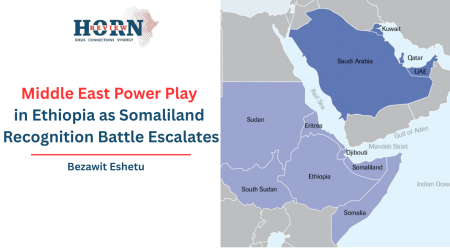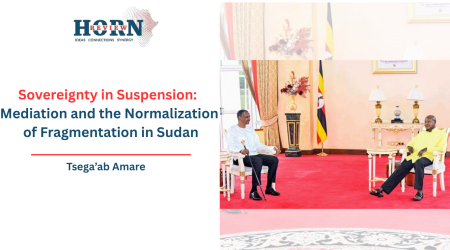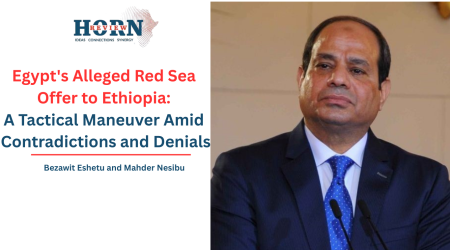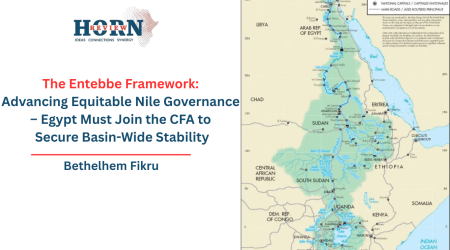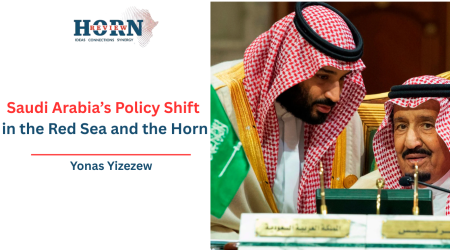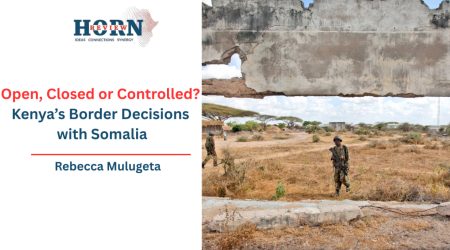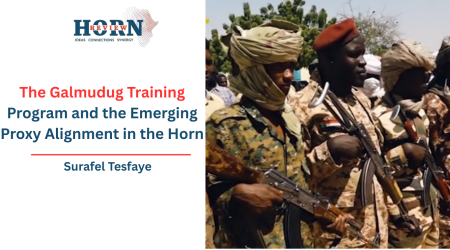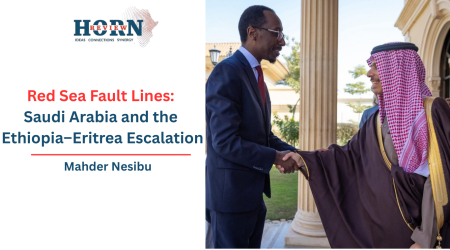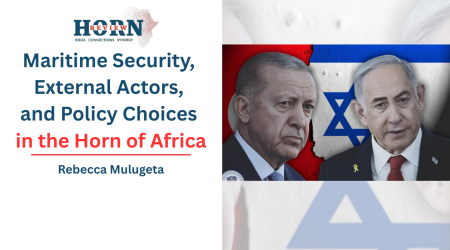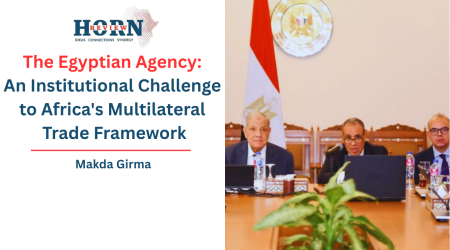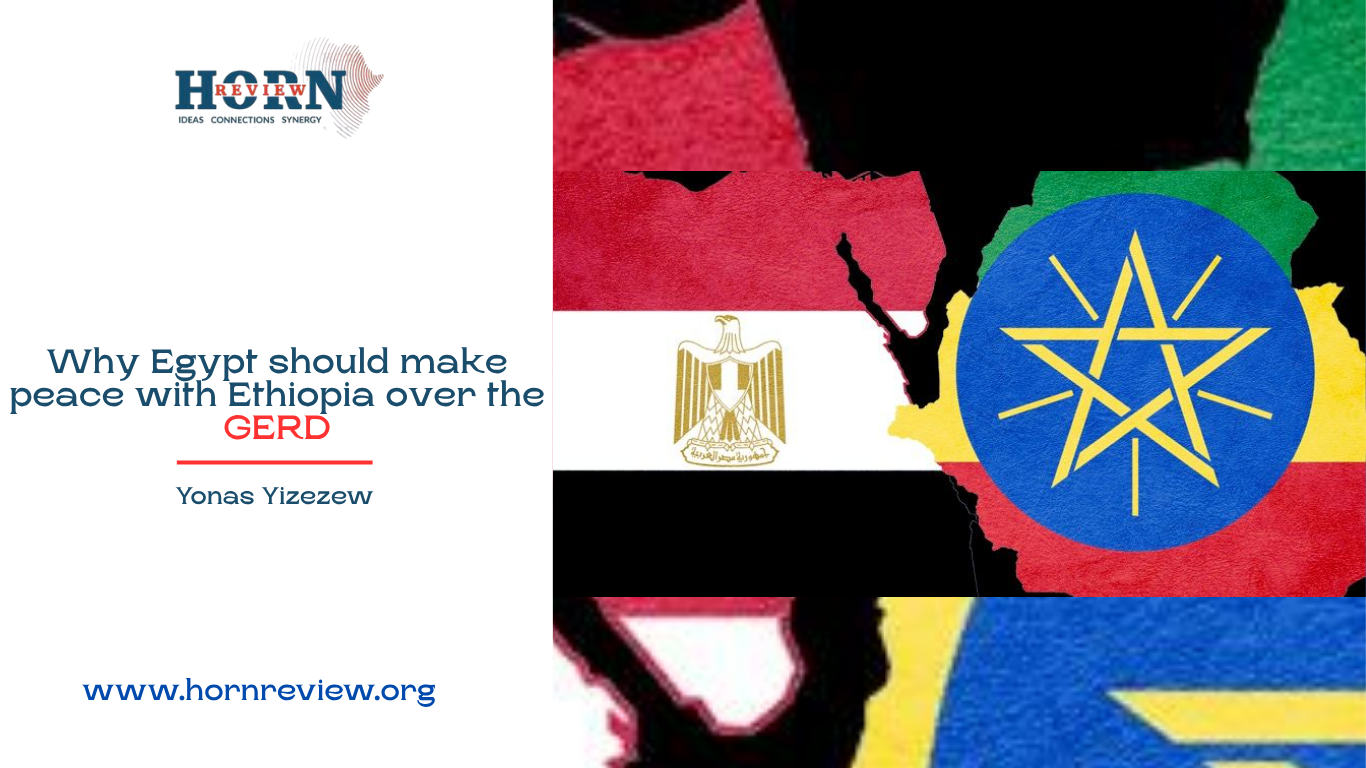
11
Oct
Why Egypt should make peace with Ethiopia over the GERD
For more than a decade, the Grand Ethiopian Renaissance Dam has been portrayed in Cairo as an existential threat. The reality on the ground has overtaken the rhetoric. The dam is built, its reservoir filled in phased campaigns, and Ethiopia has moved the project into commercial operation. That accomplishment is a political and hydrological fait accompli. The question facing Egyptian and regional leaders is no longer whether the GERD exists. It is how the three Nile partners will govern its operation so that downstream water security is protected while Ethiopia reaps vital development gains. A negotiated, enforceable settlement that respects Ethiopia’s sovereign development prerogative is both practical and in Egypt’s long-term interest.
Seeing Egypt’s position clearly first sharpens the policy case for rapprochement. Economically, Egypt faces sharp constraints even as macro indicators show some recovery, the economy has been strained by a long-running foreign currency squeeze, inflationary pressure, the costly reconstruction of security after internal shocks, and revenue shocks to key sectors such as Suez Canal receipts and tourism. The government’s fiscal room for maneuver is narrower than it appears in soundbites. Every diplomatic or security outlay competes directly with investments that would increase critical domestic water infrastructure, including reservoir expansion, river basin management, and advanced water conservation projects. Politically, President Sisi presides over an administration operating under tight domestic control and low tolerance for sustained economic pain, which makes expensive and open-ended foreign policy adventures risky. At the same time Cairo confronts mounting security headaches.
The evolving geopolitical environment has also eroded some of Egypt’s traditional buffers. Relations with the United States have become more transactional (i.e., Trump leveraging GERD dispute to pressure Egypt on Gaza resettlement plans). Washington’s attention is stretched among several regional crises, and the leverage it had with the U.S. is diminished in the face of other strategic priorities. Israel’s current security calculations have also transformed the balance. Sinai remains restive, relations with Israel have been fraying at several points over border and buffer-zone questions, and the Gaza war has consumed Egyptian diplomatic bandwidth. With the deterioration of the Camp David agreement, Cairo cannot freely rely on old security guarantees while it remains engaged in multiple, simultaneous foreign policy commitments. In short, Egypt is overstretched across economic and security dimensions, with less external leverage than it once enjoyed. These shifts make a protracted confrontation over a fait accompli increasingly dysfunctional.
Those structural weaknesses frame the costs Egypt has already borne in contesting the dam. Cairo’s approach for roughly fourteen years combined legal appeals to old treaties, regional lobbying, and intermittent threats of escalation. That campaign has been expensive in both treasure and political capital. Repeated appeals to colonial-era water treaties have gained little traction beyond rhetorical support, they sit uneasily with pan-African sentiment that rejects imposed historical entitlements. Egypt’s efforts to mobilize international legal remedies have been constrained by the 2015 Declaration of Principles, which the three capitals signed precisely to channel disputes into trilateral negotiation and regional mechanisms rather than unilateral litigation. The Declaration therefore constrains the legal avenues that Cairo has repeatedly invoked. The UN has received formal correspondence from both capitals in September 2025 that reiterates these competing legal and political claims, reflecting the diplomatic impasse rather than a legal knockout.
Moreover, institutional norms on the Nile have shifted beneath Cairo’s feet. The Nile Basin Cooperative Framework Agreement (CFA), opposed by Egypt and Sudan for years, moved toward operational reality as other riparian states ratified and the agreement entered into force, creating a Nile River Basin Commission with capacity to frame basin governance. The CFA institutionalizes principles of equitable and reasonable use and collective management that stand apart from colonial treaties of 1929 and 1959. Those treaties lack upstream legitimacy. As the CFA and basin politics have matured, the legal and normative ground supporting Cairo’s old arguments has become thinner.
The diplomatic theatre is important but secondary to the material calculus. Ethiopia built the GERD to end chronic power deficits, to industrialize, and to anchor development across the nation’s hinterland. Addis Ababa has not treated construction as an act of wanton provocation. It negotiated the 2015 principles, it engaged in multiple technical rounds, and it staged reservoir fills in seasons where hydrology permitted. When Ethiopia moved into commercial operation it issued public invitations to its neighbors for cooperation and monitoring. Those gestures are not tokens; they reflect a continued Ethiopian interest in turning a technical asset into a diplomatic bridge rather than a permanent wedge. Its core position is simple: development is a sovereign right, and cooperation must protect downstream needs without denying upstream nations their place in the modern African order.
Furthermore, Cairo’s persistence in confronting the dam has imposed diplomatic, financial, and strategic costs. Diplomatically, roughly fourteen years of effort to isolate Addis Ababa through colonial-era treaty claims and regional lobbying have produced rhetoric more than durable support, as African opinion has united around basin governance and pan-African principles rejecting imposed historical entitlements. Financially, the campaigns including legal processes, lobbying, and mobilizing external patrons have drained resources. Those resources might have financed desalination, wastewater recycling and efficiencies that materially reduce Egyptian water anxiety. Strategically, engaging in multiple potential flashpoints in the Horn of Africa, while balancing internal security, increases strategic risk.
For Egypt, making peace with Ethiopia is not an act of magnanimity, it is a strategically astute bargain. There are three connected reasons. First, negotiated CFA ratification, operational protocols for filling and releases, coupled with joint and independent hydro-meteorological monitoring than the repeated threat of external legal suits or coercive measures. Second, cooperation opens economic opportunity Ethiopia has already signaled readiness to translate the GERD’s benefits into regional goods. Third, a quiet friendship would make it easier for Cairo to seek practical, temporary concessions in moments of genuine water stress. When relations are stable and trust exists, Ethiopia is far more likely to accept exceptional, short-term cooperative measures, extra releases in bad years, faster data sharing, or other compensatory arrangements, because these steps would be framed as reciprocal acts between friendly nations rather than imposed capitulations. That is the central pragmatic bargain Ethiopia can offer without undermining its long-term development.
From Addis Ababa’s perspective, this is an opportunity to translate a technical achievement into durable regional benefit while preserving national interest. Such reciprocal steps would create a pattern of behavior that converts episodic cooperation into institutional habit. For Ethiopia, stability and predictable operation of the GERD matter as much as the right to build it. That convergence creates political space for a pragmatic settlement that advances Ethiopian development while materially reducing Egyptian anxiety.
Continued confrontation risks entrenching a zero-sum dynamic in which each side expends scarce resources on conflict management rather than on resilience. For Egypt, the consequence would include wasted fiscal capacity at a time when public patience over economic pain is limited. The outcome does not serve the long-term interests of either capital. The wiser course is straightforward: Cairo should re-engage the basin instruments it once helped craft, assert its legitimate water security needs through the CFA mechanisms, and convert adversarial habits into an architecture of predictable cooperation. Addis Ababa, for its part, should maintain its sovereign development project while offering calibrated, verifiable mechanisms of support to downstream neighbors in moments of genuine need. Peace with the GERD is not surrender; it is the only realistic strategy that secures Egypt’s core interests while enabling Ethiopia to fulfil its development imperative.
If Cairo chooses friendship rather than permanent confrontation, it will gain something more valuable than rhetoric: a partner that can be asked for help in seasons when hydrology bites. Ethiopia’s cooperation, when institutionalized through transparent thresholds and verifiable protocols, can become a reliable instrument of crisis management for the entire basin. That is a bargain that preserves dignity and development for both sides, and it is available now if leaders in both capitals are willing to trade historic grievances for present security.
By Yonas Yizezew, Researcher, Horn Review

